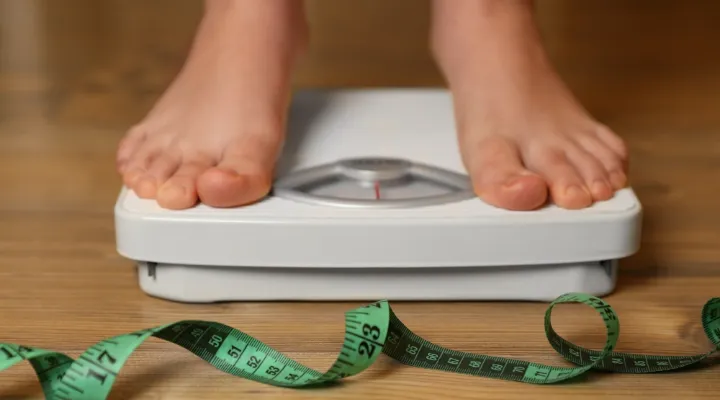It usually has lifestyle factors in the background. While setting a good example is a priority for younger children, the older the child, the more important it is to pay attention together. In case of a dietetic consultation, we discuss good nutritional guidelines and help implement them into the family's daily life. Step by step, we can move forward together.
When do we talk about childhood obesity?
For children, we track height and weight development using percentile curves, which we compare with the average for the age group. We use the BMI (body mass to height ratio) measure above the age of 3 according to age-adjusted cut-off values. Overweight is defined as being above the 90th percentile, and obese as above the 97th percentile.
Children are growing and developing, and weight reduction is not necessarily the goal. In addition to considering height, body composition measurements can help determine body fat and muscle proportions, providing a more complex picture of changes in nutritional status.
Can a child go on a diet?
A child is growing, developing, and getting smarter. This requires energy and the proper nutrients. That's why it's a good idea to consult a dietician if you have childhood obesity. Severe dietary restriction is only used with close medical monitoring and for good reason. To ensure proper development, the emphasis is not on deprivation but on establishing good eating habits and regular exercise. Reducing calorie-dense but nutrient-poor foods and snacks is recommended, as well as increasing the consumption of fruits and vegetables and adjusting the correct portion sizes. Excess energy often comes from sugary soft drinks and juices. Reducing sugar intake should not be achieved by replacing sugar with sweeteners – it is rarely recommended in the case of children (e.g., diabetes).
What is the difference between younger and older children?
For the little ones, it is mainly about habit formation. Food choices can shape their tastes. For older children, the influence of peers and fashion comes in addition to established family and individual habits. Prohibition is not appropriate for any age group. Let the parent be a role model, encouraging and rewarding. Teach your child that certain types of food - such as sweets, chips, sugary drinks, and fast food - should only be eaten occasionally and in moderation. Be consistent about this. The older the child is, the more involved they should be in planning, shopping, and preparing food.
What is the role of parental guidance?
We cannot take the child's nutrition out of the family environment. It will be difficult to change if he sees Mum or Dad eating things he shouldn't. We should not only consider eating unhealthy foods but also irregular eating, frequent fast food, and snacking. It can also be bad for the child to see a parent "constantly trying to lose weight," avoiding certain foods out of fear or struggling with eating. Part of developing good eating habits is instilling the attitude that eating is good and not a crime, and eating delicious food together is even better. We reward goals achieved and small steps taken. Think about other sources of pleasure, not food or drink.
What can we do beyond good nutrition?
Children need at least 1 hour of intense physical activity a day. This is often difficult to achieve while sitting at a desk at school or in front of smart devices at home. It is worth choosing afternoon sports activities in addition to physical education lessons. It's never too late; start in small steps. Getting the family moving together, like walking, hiking, and cycling, is quality time spent together where we can connect. Let's choose activities that suit your age and interests. Don't turn to equipment designed for adults, e.g., treadmills and weights.
Equally important is age-appropriate, good-quality sleep. Help your child to develop good habits.
When should we consult a pediatrician or dietician?
Don't wait until overweight turns into obesity. Elevated blood pressure, blood sugar, and blood fat levels are always a cause for concern. Being overweight can also be the cause of psychological problems and loss of self-confidence. It is worth exploring the need and causes with your pediatrician and then seeking the help of a dietician to help you manage your diet. Don't hesitate to seek help if your child is highly preoccupied with weight, is severely restricting their diet, is losing a lot of weight, or is showing signs of regular vomiting or diarrhea.
Tackling childhood obesity is a long process with many difficulties. The outcome can make a significant positive difference to the whole family's health. Regular consultation with health professionals can make a substantial contribution to its success.





